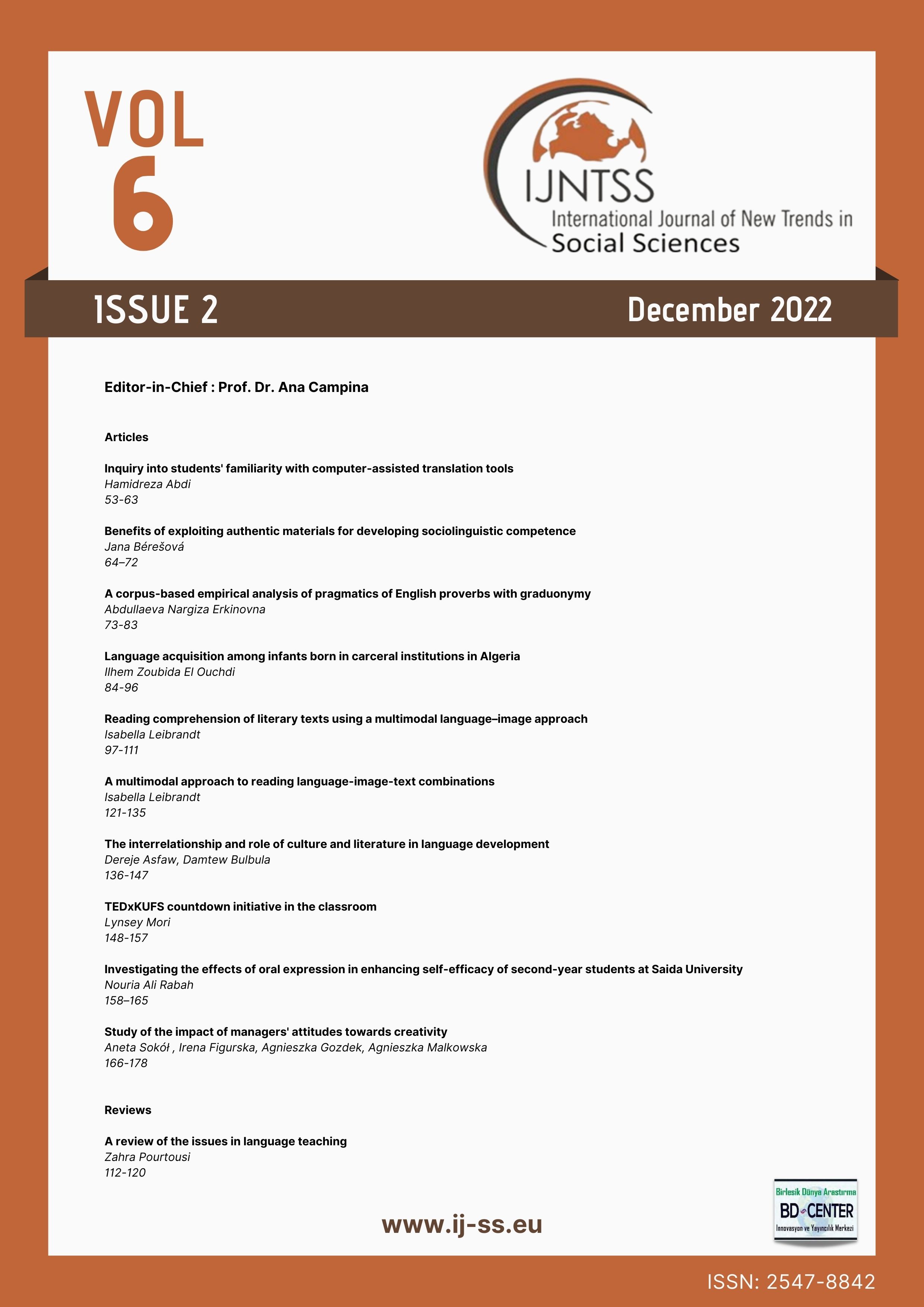A corpus-based empirical analysis of pragmatics of English proverbs with graduonymy
Main Article Content
Abstract
Nowadays, pragmatic features of proverbs are of great interest to linguists as proverbs are often used in conversations to polish speech stylistically, semantically and, at the same time, pragmatically. Paradigms such as synonymy, antonymy and polysemy were investigated as lexical-semantic relations in proverbial content in recent works. This research is devoted to analysing another lexical-semantic relation in proverbial content: graduonymic relations and their types, which are frequently seen in proverbial content, and their role in the pragmatic peculiarities of proverbs in particular contexts. The empiric corpus-based analysis of proverbs containing graduonyms in the chosen text fragments that were created by native speakers of the English language served to disclose the pragmatics of proverbs such as graduonyms function as various types of deixis, emphasise the speech act steps of the proverb and increase the pragmatic potential of the proverb. The results of the paper are discussed in the context of theoretical and pragmatic perspectives.
Keywords: Deixis, graduonymy, pragmatics, proverb, speech act;
Downloads
Article Details

This work is licensed under a Creative Commons Attribution 4.0 International License.
Authors who publish with this journal agree to the following terms:
- Authors retain copyright and grant the journal right of first publication with the work simultaneously licensed under a Creative Commons Attribution License that allows others to share the work with an acknowledgement of the work's authorship and initial publication in this journal.
- Authors are able to enter into separate, additional contractual arrangements for the non-exclusive distribution of the journal's published version of the work (e.g., post it to an institutional repository or publish it in a book), with an acknowledgement of its initial publication in this journal.
- Authors are permitted and encouraged to post their work online (e.g., in institutional repositories or on their website) prior to and during the submission process, as it can lead to productive exchanges, as well as earlier and greater citation of published work (See The Effect of Open Access).
